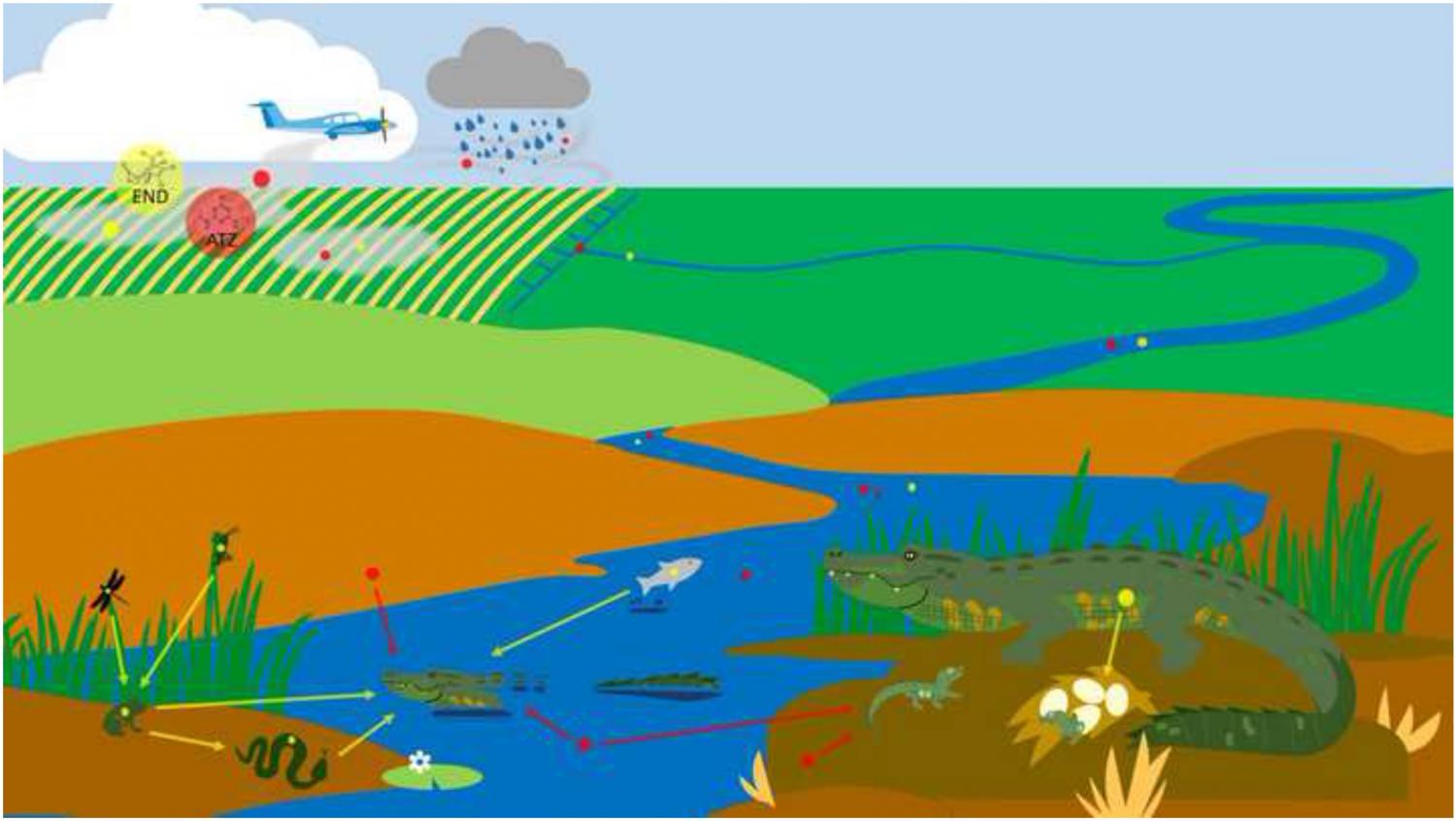
Elsevier, Molecular and Cellular Endocrinology, Volume 518, 1 December 2020
Agricultural pesticides represent a significant class of endocrine-disrupting chemicals (EDCs) to which non-target organisms around the world are constantly exposed. Laboratory studies have found strong evidence showing the endocrine-disruptive potential of these pesticides at environmentally relevant exposure levels. Since the field of endocrine disruption continues to grow in richness and complexity, this review aims to provide an update on the effects of two agricultural pesticides that act as EDCs: atrazine and endosulfan. We will focus mainly on the effects on crocodilians due to their worldwide occurrence in tropical and sub-tropical wetland ecosystems and their ecological and physiological features, which render them vulnerable to exposure to pesticides with endocrine-disrupting action at all life stages. The results here reviewed provide important insights into the effects of hormonally active agricultural pesticides at cellular, tissue, and organ levels in the reproductive system of crocodiles. A better understanding of the effects of exposure to environmentally relevant doses of EDCs on the reproductive system of crocodilians will contribute to protect and improve the health of both wildlife species and humans.
